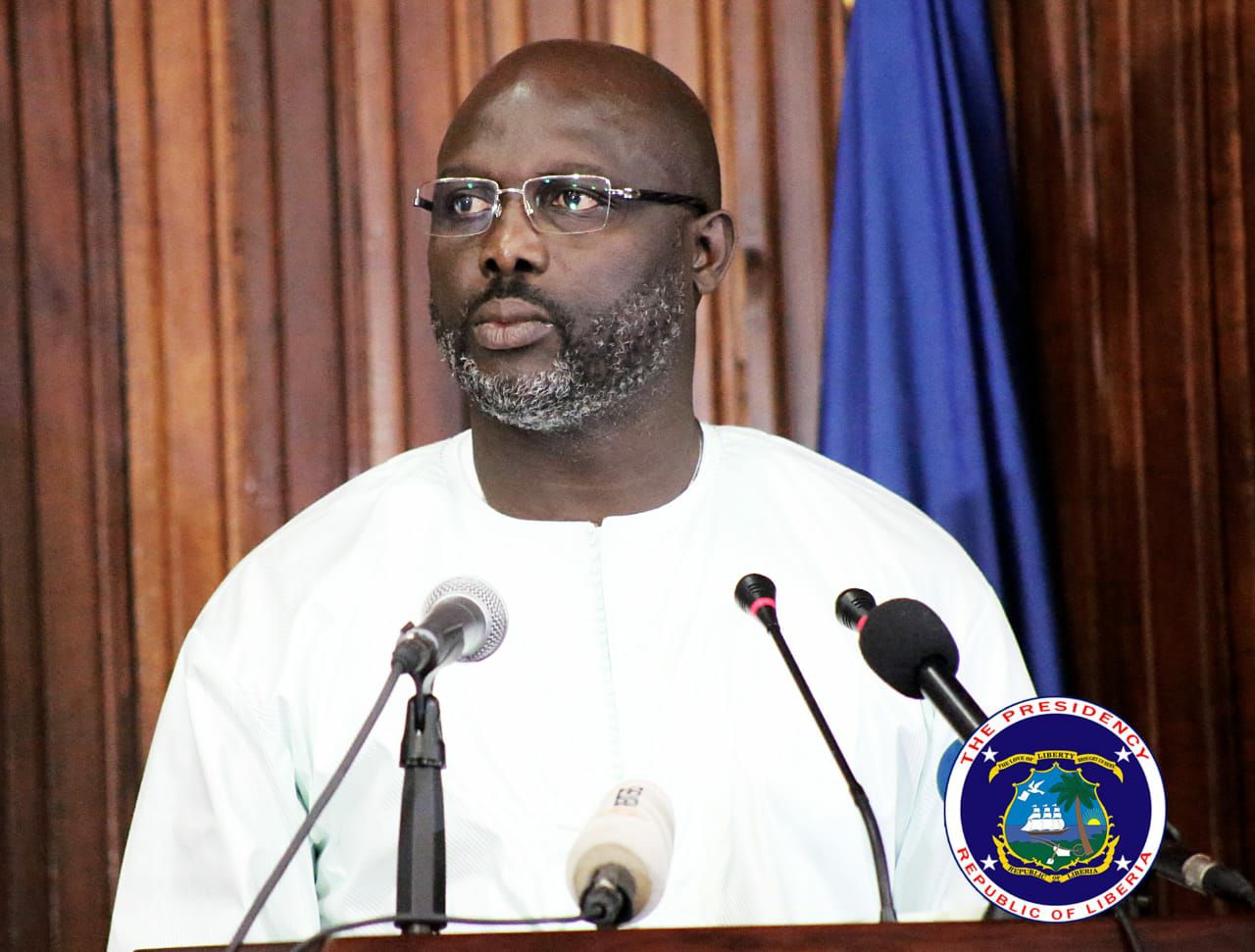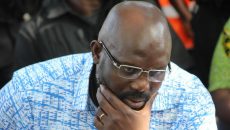Last Thursday, Pres. George Weah held a closed-door meeting with heads of Liberia’s political parties, “with the hope of advancing ideas that promote the spirit of national unity and political tolerance between opposition political parties and the Liberian government,†according to the Executive Mansion.
It’s not clear what triggered the need for the meeting, but from all appearances, it was an unnecessary occurrence designed to score political points for the president. After all, he would be perceived as being a welcoming and tolerant president.
However, any careful observer critically thinking about the meeting with the opposition would wonder whether this meeting was necessary.
For one, what substantive conversation would come out of a one-day meeting where opposition executives were reportedly given only three minutes each to speak? There would barely be enough time for introductions, let alone for a discussion of the variety of problems the country is facing.
Second, the entire idea of having the meeting is predicated upon the notion that opposition leaders have been largely silent and avoiding offering advice to the president and his administration. However, that is not the case.
The president does not need to convene a meeting with opposition leaders to hear their critiques. In fact, they have been quite vocal in offering constructive criticisms to the president.
When the president submitted his 2018/2019 budget to the legislature, opposition politicians, including some Unity Party members under the banner of the Center for Policy Action and Research, offered nuanced critiques, noting that the allocations in the budget did not align with the government’s stated policy aims.
On the Eton loan, opposition politicians widely criticized the Coalition for Democratic Change government for choosing to borrow money from a shady company in a sole-sourced deal. Alexander Cummings, who placed fourth in the first round of the 2017 presidential election, said getting the “questionable loans†was not “the best way to proceed,†even while he acknowledged the dire state of the country’s roads.
The Center for Policy Action and Research also provided its critique of the loan from Eton, noting: “This is a loan and not a grant. The agreement should not insist that a subsidiary of ETON Finance PTE Ltd, MAEIL Liberia Construction Co Ltd, be the primary firm for the implementation of [the] loan.â€
When Weah’s Coalition for Democratic Change put forth sitting lawmakers to contest in the by-elections, there were criticisms from the opposition of the president’s endorsement of those lawmakers. Their victories would trigger another expensive by-election, the opposition critics noted.
However, whenever these criticisms were made, government spokespersons always reacted in aggressively defensive manners that often employed personal attacks against their targets.
For example, during a defense of the Eton financing agreement, economist and staunch CDC supporter, Lester Tenny, said Liberia should take the loan even if it came from Lucifer (since his statement, Tenny was appointed as vice president of technical services at the National Oil Company of Liberia).
Weah himself spoke against critics of the loan agreement, calling them “enemies of the country.†It was no surprise, then that his press secretary, Sam Mannah, wrote an out-of-place commentary on the Executive Mansion website that launched an attack against Alex Cummings for his criticisms of Weah’s decisions.
As The Bush Chicken has noted in a previous editorial, Mannah’s commentary was surprising given the measured critiques Cummings had made of the Coalition for Democratic Change government’s actions as it relates to their governing style and the decisions made. Not once did Cummings appear to have made personal attacks against individuals.
But Mannah started his piece with this battle phrase: “I am amazed by the regurgitation of nothingness being proffered by the leader of the Alternative National Congress.â€
Then there are all the numerous antics of the deputy information minister for public affairs, Eugene Fahngon, who often takes to Facebook to castigate his opponents. In his recent comment about Liberty Party’s Darius Dillon’s decision to leave the president’s meeting with opposition politicians early, Fahngon wrote: “When you drop out of third grade, you will walk out of a state meeting because you are ignorant.â€
From these past instances, it’s clear that the opposition politicians are not silent. They have been providing objectively constructive criticisms of Weah’s presidency since he took office. However, the president and members of his administration have not been heeding those pieces of advice. Instead, they have often attacked the opposition.
If the president truly wants to get the opinions of opposition and isn’t simply trying to score positive public relations points, he just needs to listen to what they are already saying. And when he hears them giving critiques, the president should not refer to those individuals as “enemies of the country.†Furthermore, he needs to instruct his deputies to maintain professionalism on all platforms (including social media) when engaging the opposition.
An even better way for the president to ensure that he fosters a spirit of national unity and political tolerance is to ensure that his government is not crafted only with CDC loyalists, but the best Liberians for the job, regardless of political affiliation.



